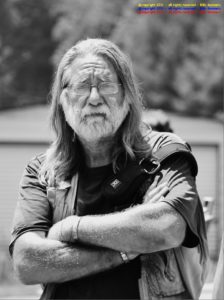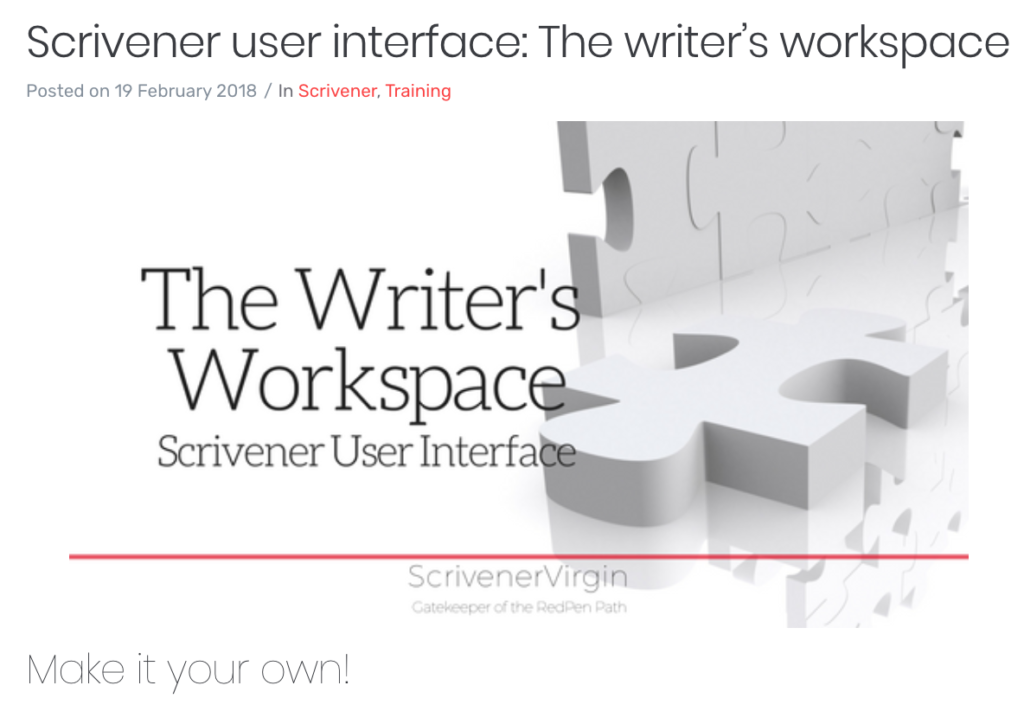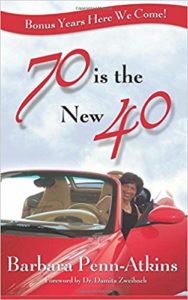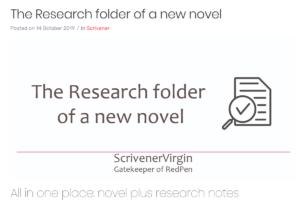Jerry Nelson: Two Ways Scrivener can Save the Day
 Today’s guest is Jerry Nelson – a content provider, freelance writer and published author.
Today’s guest is Jerry Nelson – a content provider, freelance writer and published author.
Jerry hails from Washington, DC and has travelled to, and worked in, 155 countries. As an American freelance writer, he now lives the expat life in Buenos Aires, Argentina with his wife Alejandra, their cat Tommy and a half-crazed street rescue dog, Revi.
Like many of my guests, we’ve not met face to face (yet). Instead, our paths cross online – in particular, as members the Scrivener Users Facebook group. Jerry is also one of my contacts on LinkedIn.
One of his recent pieces, a beautiful story entitled ‘Mom Visited Me Last Night‘, was accepted for publication on the Literally Literature section of the Medium website.
Jerry also has a great sense of humour – check out his ‘ad’ on LinkedIn – and today, with amazing good timing, on my seventieth birthday no less, Jerry is offering ‘Two Ways Scrivener Can Save the Day for Older Digital Nomads — And Everyone Else‘.
Anne: Over to you, Jerry!
Thanks Anne, for having me here, and happy birthday!
According to writer and author, Barbara Penn-Atkins, 70 is the new 40.
Anne: I hope so!
Barbara may be on to something. Taking advantage of this unique point in history where technology meets disposable income meets healthier retirees, more 70-somethings are taking to the open road as digital nomads.
Anne: Ain’t that the truth! As this post goes live, I am 10,674 miles away from home, having enjoyed a special day with family and friends. I’m definitely a digital nomad.
Us older folks have it made. We often have the money to travel and the technical skills to make a living while we explore the great home of the soul – the open road.
While the tag ‘digital nomad’ is frequently used to describe the lifestyle of twenty-somethings, anyone choosing to live their life by a compass, not a clock, qualifies.
Anne: My sentiments entirely. Have passport and laptop – will travel.
But you don’t have to have breakfast in Borneo to be a digital nomad. A trip two towns over for a grandchild’s birthday, or across the country to visit relatives and explore new vistas, can be just as much an adventure as a trip around the world.
Combining the latest technology, greater disposable income, and a mobile lifestyle, increasing numbers of ‘senior citizens’ are reaching out and embracing the modus vivendi.
Here are a few ideas to help you get up, moving and on the road. But remember, you don’t have to travel to be a digital nomad. You can stay right at home and put these ideas to work for you as you grow your writing career.
Scrivener – the benefits for an older digital nomad
Scrivener, first available in January 2007, makes being an older digital nomad simpler in numerous ways. The two benefits most frequently pointed to are: organisation and research.
The benefit of organisation
Many writers struggle to get, and stay, organised.
With too many pages of research notes and notebooks thrown around, it can be hard to find even a pen. Even if your writing space is tidy, organising the mind to write can be a struggle.
Scrivener gathers all of your research into one place and eliminates the need for endless paper notes or scattered computer files. Scrivener is made by writers, for writers.
Whether you intend to write a book of your travels or merely an article about your latest staycation, Scrivener is comprehensive and has everything you need.
Anne: I agree. My post on The Writer’s Workspace spells out how to make the best of Scrivener as a writer. Follow that with The Editor’s Workspace!
Follow that with The Editor’s Workspace!
The benefit of research
With many ‘on board’ features, Scrivener supports the research process in a way no word processor can.
The simplest methodology is to build your research using the Research folder in the binder. This single feature makes getting, and using, Scrivener worthwhile. All of the ideas and random notes gathered about your work-in-progress find a home, a dedicated spot in Scrivener.
The Research folder means you have all of your random brain sneezes in one convenient place while still using a hierarchy of files and folders which can still be used on one main screen.
No more switching to other programs, or scrolling endlessly in Word to find that one special piece of research.
Inside the Research folder, anything can be stored:
- Links
- General notes
- Images
- Character notes
- Setting notes
- Historically relevant information, and more.
There is literally no limit to what can be stored in the Research folder and no limit to the media type either.
Whatever your research entails, Scrivener can handle it. You can even import existing files if you’ve begun your digital exploration in another part of the Internet.
Anne: indeed, check out how I use the Research folder when starting a new novel.
Anne: So, Jerry, what’s your takeaway message for our readers?
Jerry’s takeaway
Regardless of how you decide to use Scrivener, don’t let the complex nature turn you off.
There is a learning curve to be sure, but there’s a learning curve behind anything worthwhile.
Once you have Scrivener figured out, your writing will be better than ever before — no matter where you roam.
Anne: True. And I’ve devised a free 14-day Scrivener course for anyone who wants to embrace that learning curve. Click here for details.
More about Jerry Nelson
Jerry has written for many publications, both online and in print, including the Washington Post, CNN, Entrepreneur and Forbes.
His book The Rainbow Family Murders is based on the true story of a double murder in the backwaters of West Virginia.
How to contact Jerry Nelson
Email: ja************@gm***.com
Twitter: @Journey_America
Fiverr: Fiverr.com/jandrewnelson
If you would like to have a guest blog spot, contact me!
The ScrivenerVirgin blog is a journey of discovery:
a step-by-step exploration of how Scrivener can change how a writer writes.
To subscribe to this blog, click here.
Also … check out the Scrivener Tips
on my ScrivenerVirgin Facebook page.





No Comments